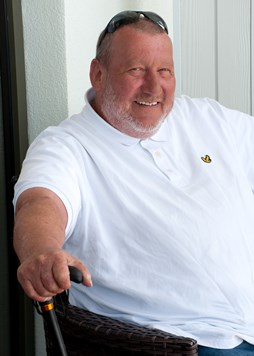Take Part in Research
See below for opportunities to take part in psoriasis research, or to share your experiences. Please note that these projects are not run by the Psoriasis Association, but by external parties such as academic research departments.
We do not normally advertise commercial clinical trials. If the opportunities below do not match the type of project you are looking to be involved in, you can also take a look at 'Be Part of Research', which is run by the National Institute for Health Research (NIHR) and will give you lots of information about taking part in clinical trials and allow you to search for a relevant trial in your area. More information about clinical trials can also be found on the NHS website and at ClinicalTrials.gov.
Siblings of people with psoriasis
Share Your Story – Research Opportunity for Siblings
The Centre for Appearance Research is looking for young people (16-25 years old) who have a sibling with psoriasis.
This study aims to explore the experiences of growing up with a sibling with a visible difference. Share your story in a guided interview and receive a shopping voucher as a thank-you.
Your insights will help improve understanding and support for siblings and families.
If you’re interested, follow the link: https://go.uwe.ac.uk/siblingresearch or email Maia.Thornton@uwe.ac.uk to take part.
The closing date for recruitment is 31st May.
MOVE SMART for Psoriasis
We want to find out if MOVE SMART, new lifestyle programme for patients with psoriasis, can help psoriasis and other conditions linked with psoriasis. MOVE SMART has been developed by dermatologists, scientists and patients with psoriasis and can be followed from your home or workplace.
The study involves:
- All participants following MOVE SMART (half during the first 12-weeks and half after 24-weeks).
- No appointments at the Research Centre. This study can be followed from your home or workplace.
- Contact with the research group throughout the study.
- Completing questionnaires about your psoriasis, general health and what you like / dislike about the study.
- Aged between 18 and 60
- Psoriasis that started before the age of 40
- Some psoriasis on their skin
- Psoriatic arthritis (and those who do not have psoriatic arthritis)
- Unable to rise from sitting to standing and walk around a room (independently or aided by a stick or trolly) at a steady pace
- Pregnant or breastfeeding
- Severe heart or chest problems
- Already following physical activity guidelines
We are looking for people who are/have:
This study is not suitable for people who have / are:
How to Get Involved

You will receive a gift voucher as a thank-you for your time.
HPOS trial to identify who might develop psoriatic arthritis
About the project:
Russ Cowper, who has suffered with psoriatic arthritis for nearly 40 years, is urging people with psoriasis to take part in the HPOS study. Researchers are trying to find out what triggers psoriatic arthritis, which affects 1 in 3 people with psoriasis, and to prevent its development in the long term.
Russ is Vice-Chair of The Psoriasis Association and was elected in June 2024, having joined the Board of Trustees in 2022. You can read more about Russ’ role as Vice-Chair here.

A few years later I collapsed one morning while getting out of bed for work. Both my ankles had swollen up overnight and I struggled to walk. I was diagnosed with psoriatic arthritis but had no idea what PsA was. I was off work for 11 weeks and during that time patches of psoriasis started to develop on my back and torso. While my ankles got better for a time, my skin got worse and worse.
Eventually I had no option but to give up work and decided to further my education with the aim of becoming a teacher. Sadly, I never finished as I became quite ill and ended up in what was to be the first of 29 stays in hospital.
Psoriatic arthritis caused significant pain in my joints, and I was continually in and out of hospital. In total I have spent nearly 3 years of my life on hospital wards trying to find effective treatments. The only joints that have escaped flares are my elbows. At one point I was in hospital 100% covered in psoriasis and wracked in pain. The pain together with the impact on my work and social life means that I have struggled psychologically.
I was put on systemic medicines which aim to dampen the immune system but ended up back in hospital when they caused me liver and kidney problems.
The arrival of new medicines called biologics changed my life. I still had the occasional stay in hospital, but flares were becoming rarer and less severe. I am now on my ninth biologic medicine and whilst I am not 100% healthy, I can do what my mates do. I have even been able to travel to Germany and Spain to watch the love of my life Manchester City FC in Champions League games!
As I’ve become healthier, I can do more patient advocacy to help educate and support people with psoriasis and PsA. It is why I am encouraging people to get involved in the HPOS study, looking into the reasons why PsA develops in psoriasis patients.
How to get involved
Please help and sign up at this link: https://www.hpos.study/
What participants are asked to do:
Taking part is simple. Participants, who are over 18 years of age and diagnosed with psoriasis, but not with psoriatic arthritis, will be asked to complete an online questionnaire every 6 months. Over a period of 3 years, the responses will be monitored and from the results the researchers will be able to identify which patients will go on to develop arthritis. The long-term aim is to try to prevent the development of arthritis before it occurs.
Eczema, acne and psoriasis in skin of colour: primary care experiences in the United Kingdom
We are researchers at the University of Bristol. We want to better understand the experiences of people with eczema, acne and psoriasis, particularly in the context of their skin colour and ethnic background. We would like to invite you to share your experiences by completing this short online survey.
This is open to any anyone over the age of 16 with eczema, acne or psoriasis. We would love to hear from people of all skin tones.
To access the survey, please
click on the following link: https://www.bristol.ac.uk/socx-study
Further information, including a participant information sheet and our contact
details, is available via the survey link above.
Developing and evaluating the physical and psychological therapeutic effects of psychological interventions in adults with psoriatic disease: A mixed-methods approach
We are looking for individuals with personal/ carer experience in psoriasis (skin/ joint or both) to help shape a potentially groundbreaking study. This research will explore the impact of psychological interventions, such as Mindfulness-Based Cognitive Behavioral Therapy (MBCT) and Clinical Hypnotherapy, alongside standard medical treatments, on improving psoriasis outcomes.
As a Patient and Public Involvement (PPI) contributor, you will:
- Share your insights to ensure the research is relevant and patient-focused.
- Help refine the design and delivery of the study, ensuring it meets the needs of people living with psoriasis.
- Assist in making study materials clear, accessible, and meaningful.
- Contribute to raising awareness about the importance of psychological well-being in managing chronic conditions.
Who Can Join?
We welcome:
- Adults with lived experience of psoriasis or psoriatic arthiritis or both, of any severity including historical diagnosis.
- Caregivers, advocates, or those with an interest in improving healthcare approaches for psoriasis.
- No previous research experience is necessary—just your perspective and willingness to contribute.
What’s In It for You?
- Be part of impactful research that could improve lives.
- Share your views and experiences in a supportive environment.
How to Get Involved
If you’re interested in joining our PPI group or would like more
information, please contact:
Pankhuri Dudani via pankhuridudani@gmail.com
JAKPPPOT Trial
We are looking for adults with palmoplantar pustulosis, diagnosed by a dermatologist, to take part in the JAKPPPOT trial. During the trial, participants will take a tablet once-a-day for 8 weeks. This tablet will be a janus kinase inhibitor, a new group of drugs that suppresses the immune system. The drug is called upadacitinib (its brand name is ‘Rinvoq’).
Participants will attend our clinic at Guy’s and St Thomas’s NHS Trust, London Bridge, regularly during the 8-week trial, and we will take blood samples at each visit. We will also invite participants to take part in a voluntary interview before and after the 8 weeks of treatment to understand their thoughts on the tablet and the trial more generally.
Participants will need to be over the age of 18, and cannot be pregnant or breast-feeding. Participants will need to stop all UV light related treatment or systemic treatment (medications taken by mouth or injected) that they are currently taking, but they can continue using certain topical treatments (creams/ointments).
Please contact Dr David Gleeson (Principal Investigator) at JAKPPPOT@gstt.nhs.uk to find out more about this study.
Developing a social media intervention to increase awareness and understanding of psoriasis: A mixed-methods project using co-production with adults with psoriasis
Your valuable feedback can help shape this study!
Find out more by getting in touch with Mani via email: emmanuel.toni@uwe.ac.uk
Opportunity for adolescent patients with psoriasis to take part in a trial comparing Risankizumab with Ustekinumab (OptIMMize-1)
***UPDATE - Please note that Parts 1, 2 and 3 of this study are now closed to recruitment. Recruitment for Part 4 of the study has not yet commenced – details will be announced in due course.***
This is an opportunity for 12-17 year old patients with moderate to severe plaque psoriasis. The trial, sponsored by the pharmaceutical company, AbbVie, compares the treatment efficacy and safety of Risankizumab (Skyrizi) vs Ustekinumab (Stelara), two biologic therapies. All participants are guaranteed active treatment, regardless of whether they have had systemic therapy before.
Recruitment criteria (list not exclusive):
- Aged between 12 to < 18 years at the time of enrolment
- Have had a diagnosis of chronic plaque psoriasis for at least 6 months
- Have moderate to severe psoriasis, defined as ≥ 10% Body Surface Area (BSA) psoriasis involvement with a static Physician’s Global Assessment (sPGA) score of ≥ 3, or Psoriasis Area and Severity Index (PASI) ≥ 12
- Erythrodermic psoriasis, generalised or localised pustular psoriasis, medication-induced or medication exacerbated psoriasis, or new onset guttate psoriasis;
- Active skin disease other than psoriasis that could interfere with the assessment of psoriasis;
- Clinically significant drug or alcohol abuse within the last 6 months;
- An allergic reaction or hypersensitivity to a biologic agent or its excipients;
- A latex allergy;
- An organ transplant that requires continued immunosuppression;
- Any malignancy except for successfully treated non-melanoma skin cancer or localised carcinoma in situ of the cervix.
- Hepatitis B (HB) (hepatitis B virus [HBV]) or hepatitis C (hepatitis C virus [HCV]) infection;
- Human immunodeficiency virus (HIV), defined as confirmed positive anti-HIV antibody (HIV Ab) test;
- Genetic deficiency in IL-12/IL-23;
- West Ambulatory Care Hospital, Glasgow: Areti.Makrygeorgou@ggc.scot.nhs.uk
- Frimley Park Hospital, Surrey: sara.sherif@nhs.net
- Royal Devon and Exeter Hospital, Devon: naomi.goldstraw@nhs.net
- Derriford Hospital, Plymouth: thurein.newin@nhs.net
- Guy’s and St Thomas’ NHS Foundation Trust, London: please email Eva.Hilger@gstt.nhs.uk or call 07917217601
No history of:
No evidence of:
The following centres are
open for recruitment into the study (please email the investigators directly):
Dr Wedad Abdelrahman,
Chief Investigator
(wedad.abdelrahman@gstt.nhs.uk)
Prof Carsten Flohr,
Study Investigator (carsten.flohr@kcl.ac.uk)
Consultant Paediatric Dermatologists
St John’s Institute of
Dermatology,
Guy’s & St Thomas’
NHS Foundation Trust